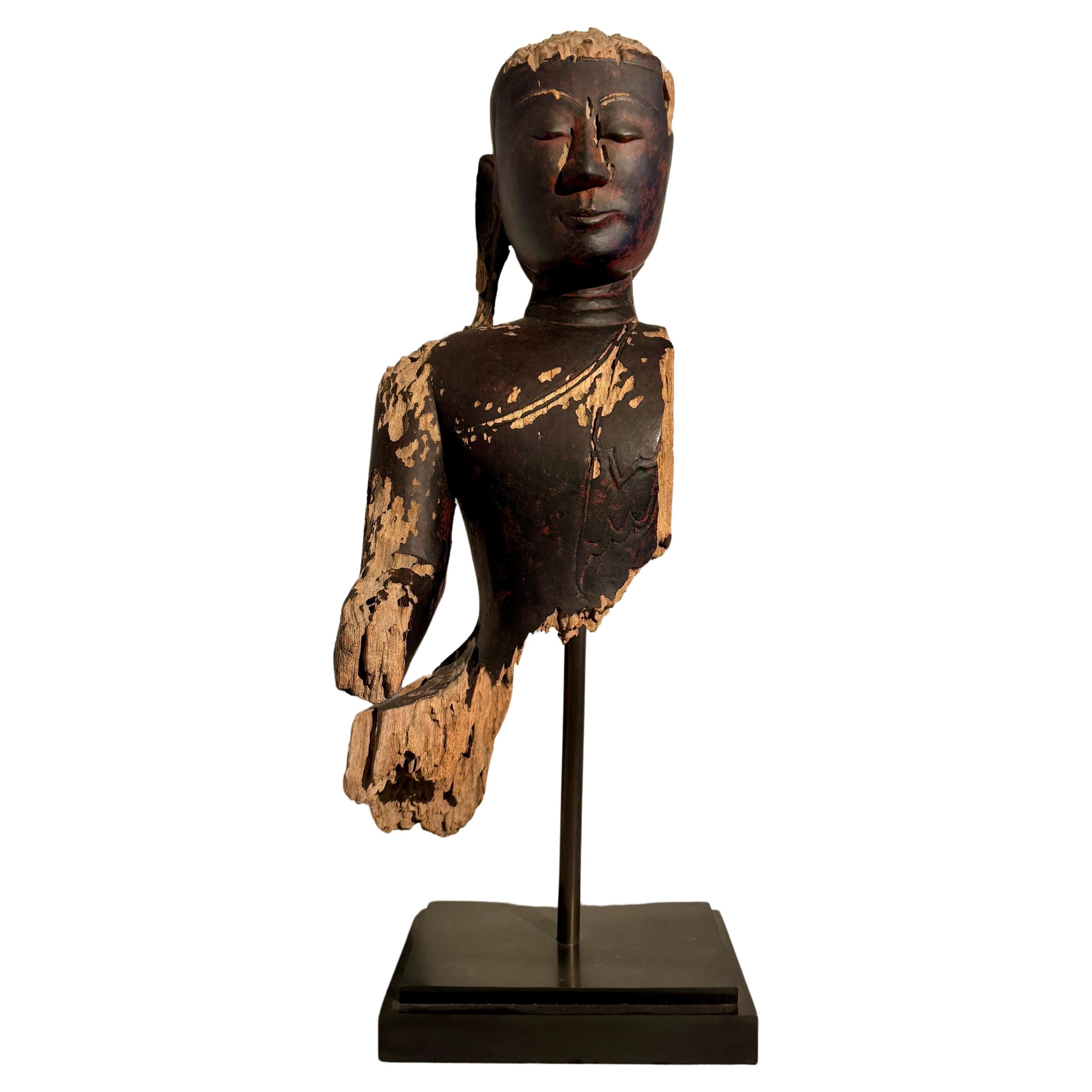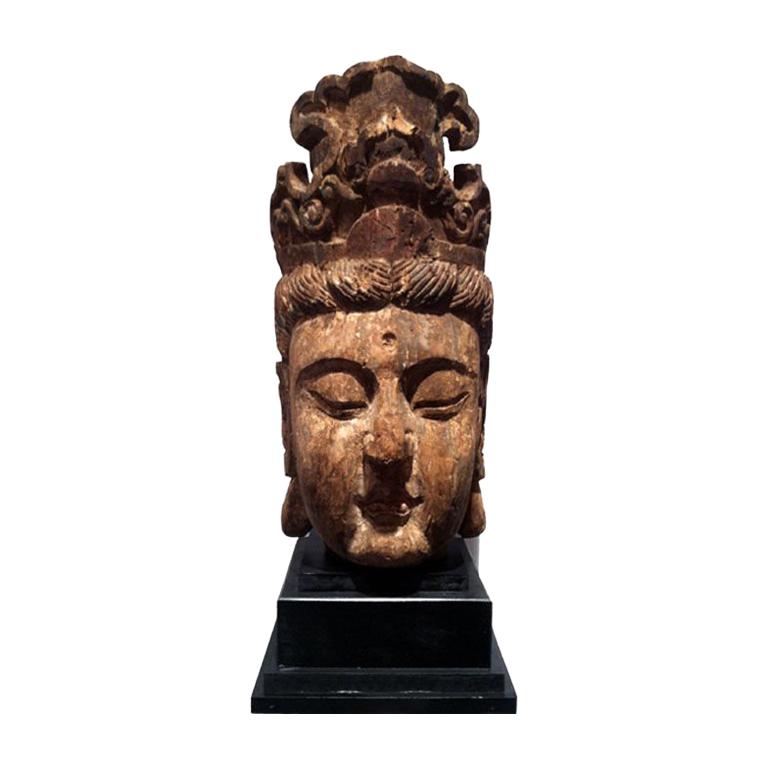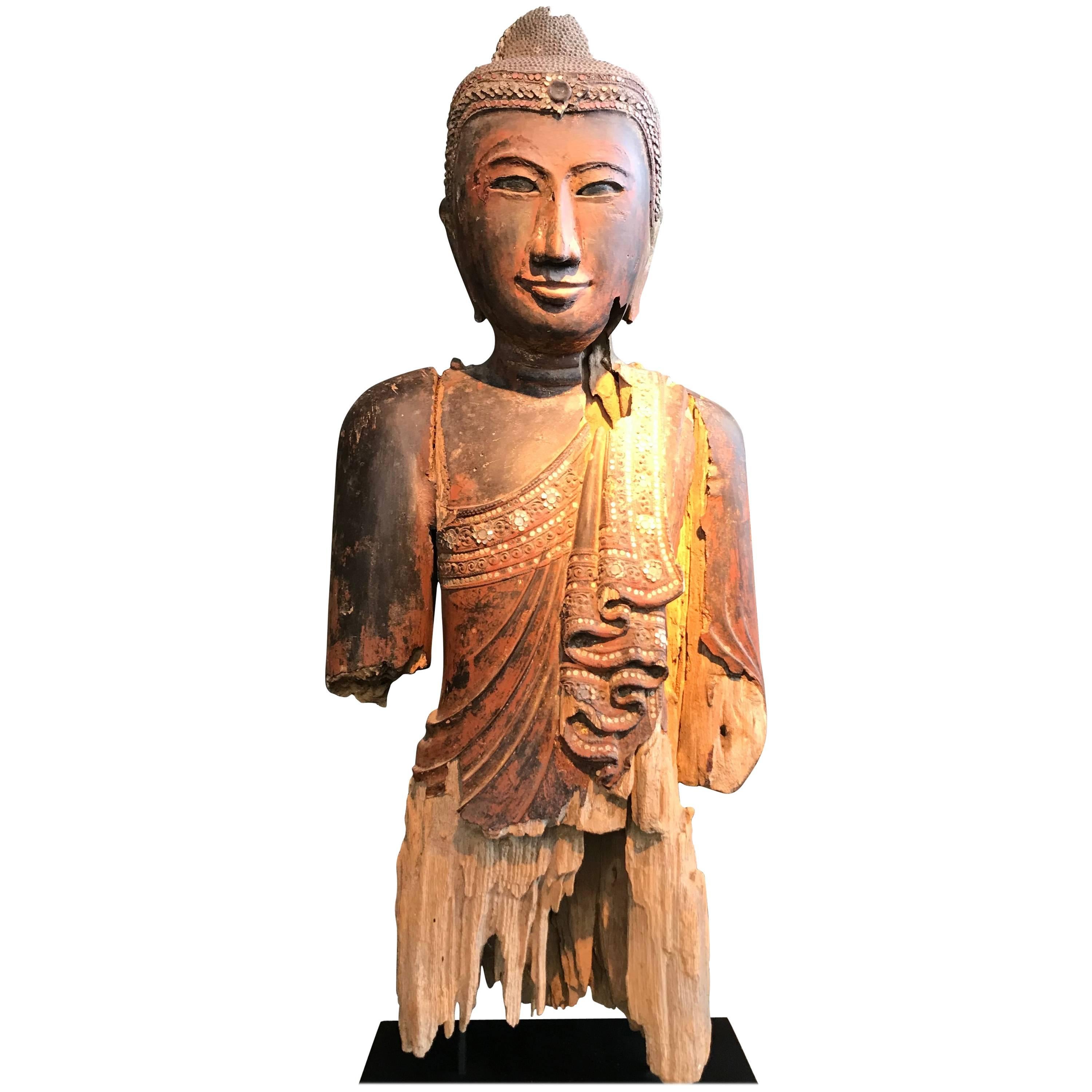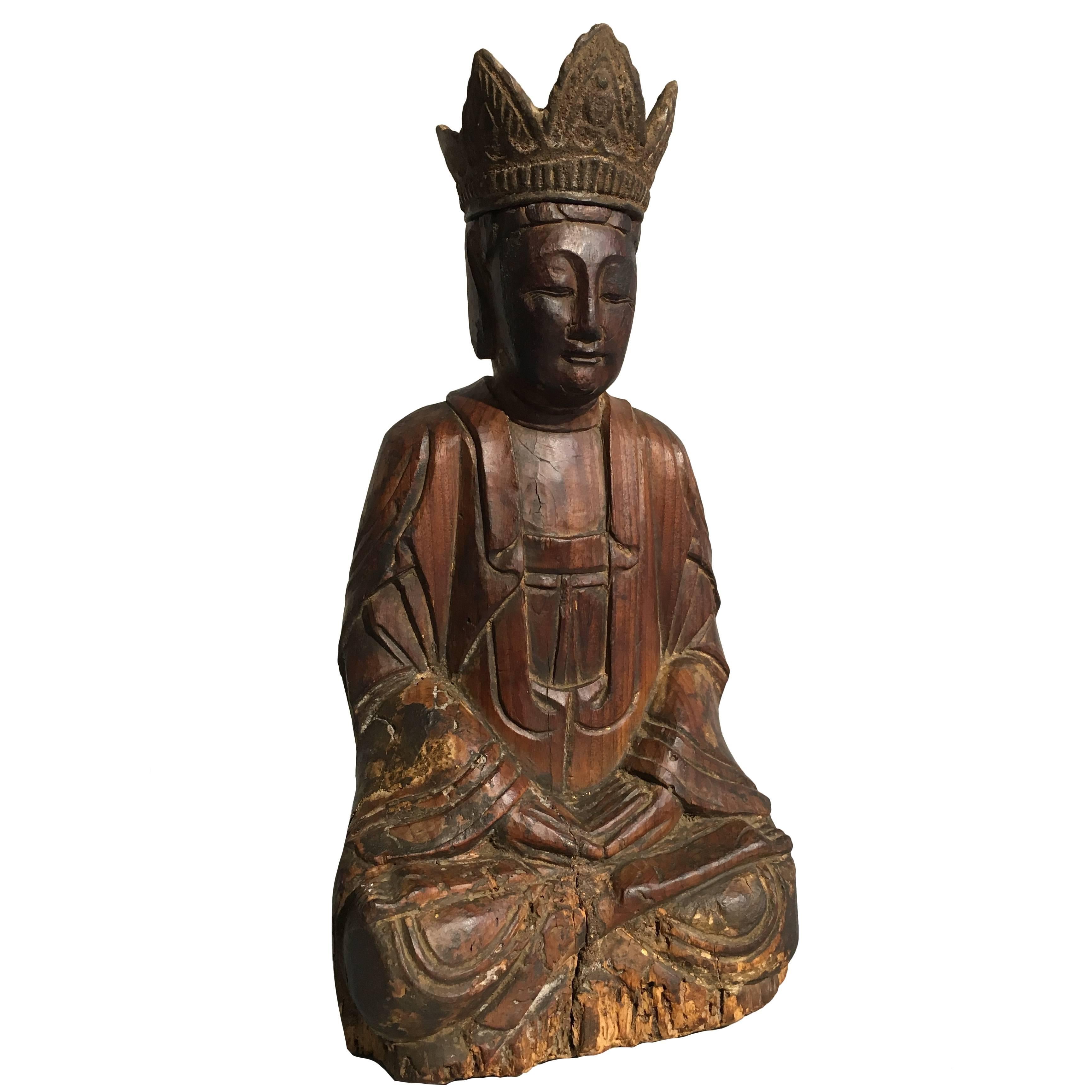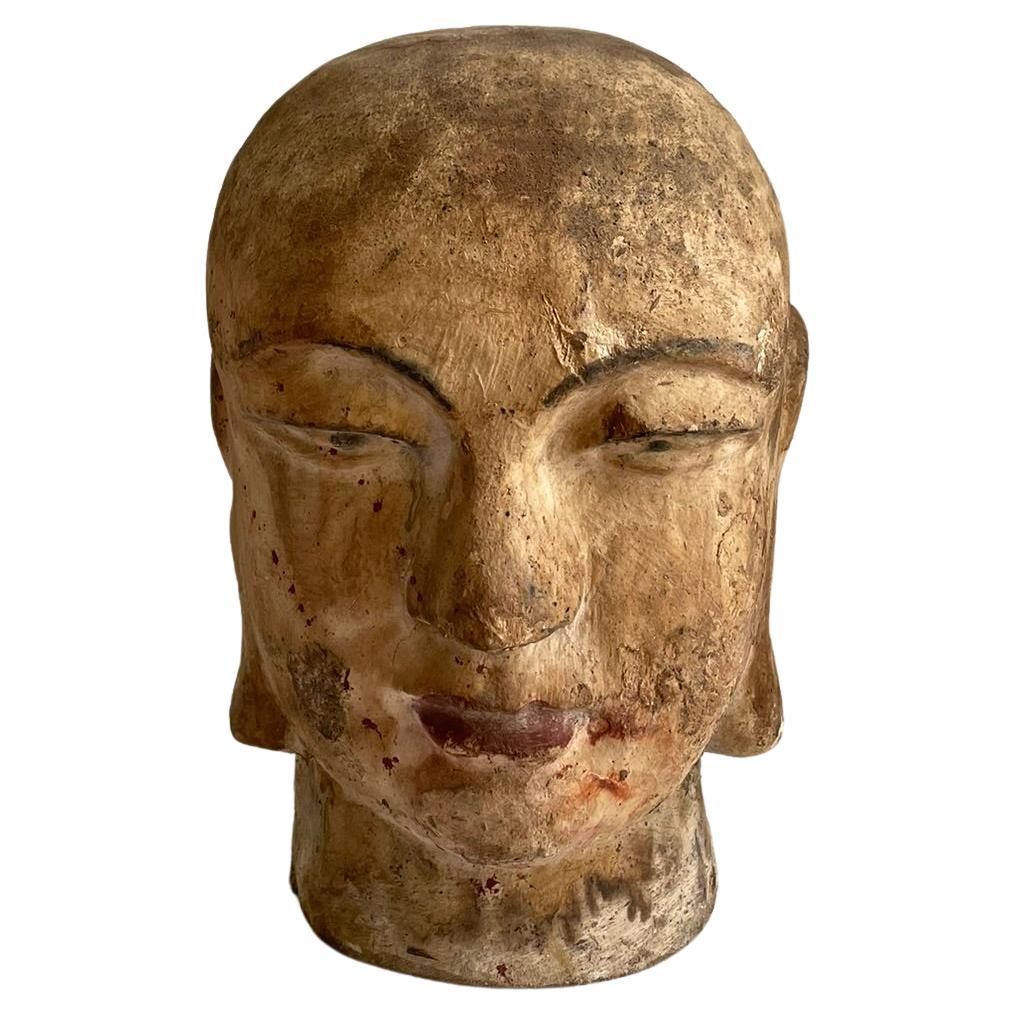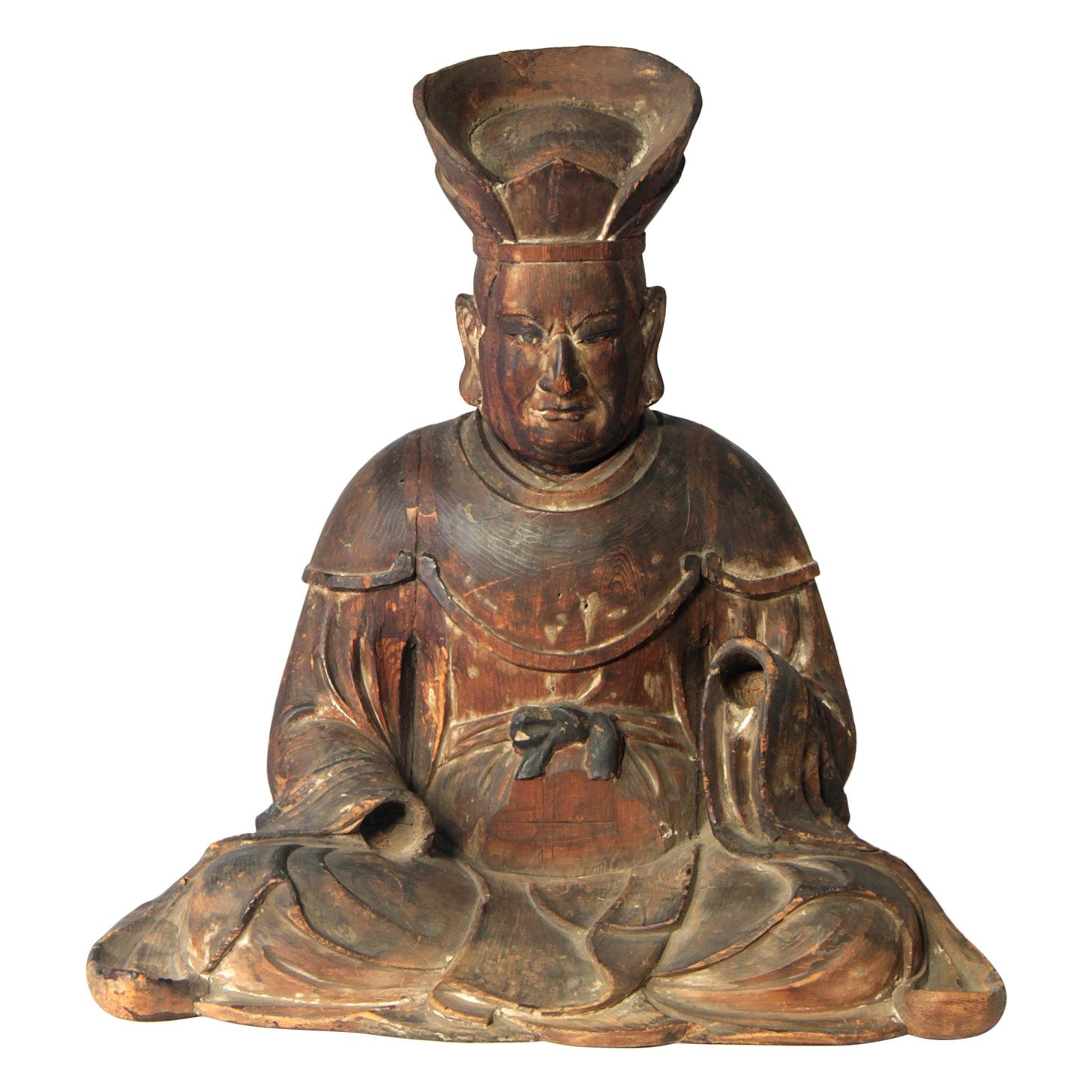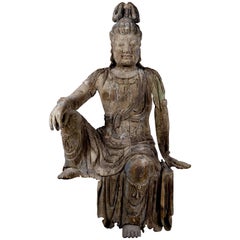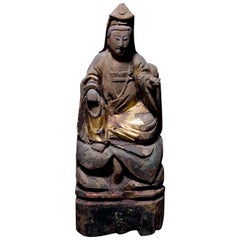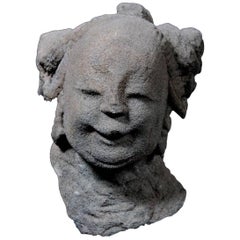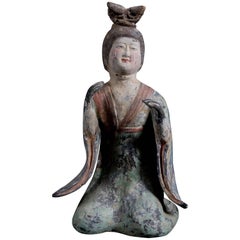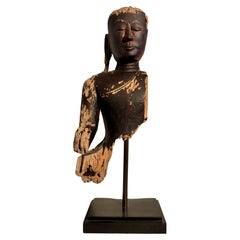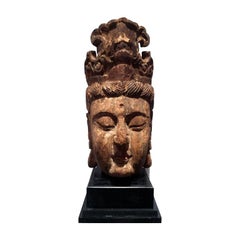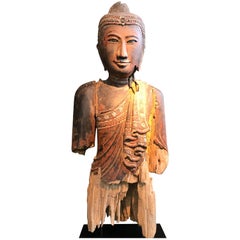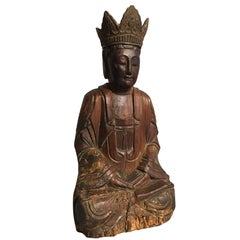Items Similar to Ming Dynasty Very Rare Wooden Bust of Lohan
Want more images or videos?
Request additional images or videos from the seller
1 of 10
Ming Dynasty Very Rare Wooden Bust of Lohan
$15,000
£11,268.42
€12,994.32
CA$20,814.46
A$23,129.45
CHF 12,120.08
MX$283,641.51
NOK 154,584.54
SEK 145,427.46
DKK 96,984.08
Shipping
Retrieving quote...The 1stDibs Promise:
Authenticity Guarantee,
Money-Back Guarantee,
24-Hour Cancellation
About the Item
Very serene depiction of a Lohan carved in wood, eroded with the pass of time. Lohan is the Chinese term, derived from the Sanskrit word Arhan, for a disciple or follower of Buddha who has reached a state of enlightenment. The Lohan had been a popular subject in Chinese art at least since the cultural flourishing of the Tang Dynasty. Its expression reflects tranquility. Having achieved enlightenment, Lohans were free from all earthly desires and no longer subject to the cycle of rebirth.
Custom-made metal base.
- Dimensions:Height: 17 in (43.18 cm)Width: 14 in (35.56 cm)Depth: 8 in (20.32 cm)
- Style:Ming (Of the Period)
- Period:
- Date of Manufacture:1368-1644 AD
- Condition:
- Seller Location:San Pedro Garza Garcia, MX
- Reference Number:Seller: CH-0261stDibs: LU317239484281
About the Seller
3.7
Vetted Professional Seller
Every seller passes strict standards for authenticity and reliability
1stDibs seller since 2017
24 sales on 1stDibs
Typical response time: 1 to 2 days
- ShippingRetrieving quote...Shipping from: San Pedro Garza Garcia, Mexico
- Return Policy
Authenticity Guarantee
In the unlikely event there’s an issue with an item’s authenticity, contact us within 1 year for a full refund. DetailsMoney-Back Guarantee
If your item is not as described, is damaged in transit, or does not arrive, contact us within 7 days for a full refund. Details24-Hour Cancellation
You have a 24-hour grace period in which to reconsider your purchase, with no questions asked.Vetted Professional Sellers
Our world-class sellers must adhere to strict standards for service and quality, maintaining the integrity of our listings.Price-Match Guarantee
If you find that a seller listed the same item for a lower price elsewhere, we’ll match it.Trusted Global Delivery
Our best-in-class carrier network provides specialized shipping options worldwide, including custom delivery.More From This Seller
View AllMonumental "Bigger Than Life Size" Wooden Bodhisattva
Located in San Pedro Garza Garcia, Nuevo Leon
Imposing figure of Bodhisattva sitting in a royal pose with a beautiful serene expression, with semi close eyes expressing beatitude, in very well carved robes and pearl strings on t...
Category
Antique Late 17th Century Chinese Antiquities
Materials
Wood
Lady Guanyin Bodhisattva Gilded Wood Carving - Ming Dynasty, China 1368-1644 AD
Located in San Pedro Garza Garcia, Nuevo Leon
Magnificent Lady Guanyin Bodhisattva seated in Royal Relaxation pose hand-carved in Gilded Wood with traces of paint still visible.
This expressi...
Category
Antique 15th Century and Earlier Chinese Ming Antiquities
Materials
Wood
Ming Dynasty Celestial Deity Head Carved in Stone - China '1368-1644 AD'
Located in San Pedro Garza Garcia, Nuevo Leon
Wonderful celestial deity head with a jovial expression in stone with a finely engraved cap. It is mounted on a custom lucite base.
This piece is accompanied by a Certificate of Authenticity, and Certificate of Expertise by Jean-Yves Nathan - Specialist in Asian Arts for the CEDEA (The European Confederation of Art Experts).
The Ming dynasty was the ruling dynasty of China – then known as the Empire of the Great Ming...
Category
Antique 15th Century and Earlier Chinese Ming Antiquities
Materials
Stone
Tang Dynasty Expressive Imperial Court Singer - TL Tested
Located in San Pedro Garza Garcia, Nuevo Leon
Very expressive Imperial Court singer dressed in elegant ceremonial robes with long sleeves and hands in motion. Gray terracotta. Thermoluminescense Test by Ralph Kotalla Lab NE: 05K091003 (Worldwide oldest private laboratory specialized in TL testing...
Category
Antique 15th Century and Earlier Tang Antiquities
Elegant Han Dynasty Terracotta Warrior - China '206 BC - 220 AD'
Located in San Pedro Garza Garcia, Nuevo Leon
Impressive terracotta warrior representing a banner bearer gripping a wooden staff with his hands (dematerialized through the ages); his gaze is ser...
Category
Antique 15th Century and Earlier Chinese Han Antiquities
Materials
Terracotta
Shakyamuni, the Original Buddha Sculpted in Schist Stone, Originally from a Cave
Located in San Pedro Garza Garcia, Nuevo Leon
Shakyamuni, the original Buddha sculpted in schist stone. Originally from a cave.
Sui dynasty '589-618' AD
Gautama Buddha, also known as Siddhartha or simply the Buddha. He was an a...
Category
Antique 15th Century and Earlier Chinese Antiquities
Materials
Schist
You May Also Like
Burmese Buddha Fragmentary Lacquered Wood Bust, Ava Period, 17th/18th Century
Located in Austin, TX
A mysterious and evocative heavily weathered and fragmentary bust of a Burmese standing Buddha, Ava Period, late 17th or early 18th century, Bu...
Category
Antique Early 18th Century Burmese Sculptures and Carvings
Materials
Metal
Large Wood Sculpture of Boddhisatva Head Ming Dynasty
Located in Atlanta, GA
Large antique Chinese carved wood sculpture of a Boddhisattva head circa 16-17th century from Ming Dynasty. Likely part of a full body life-size statue, the head was finely carved, p...
Category
Antique 17th Century Chinese Ming Sculptures
Materials
Wood
Thai Wooden Buddha Head Sculpture, 19th Century
Located in Schellebelle, BE
Thai wooden Buddha head, carved with polychrome traces, 19th century
part of a standing Buddha
decorated with glass elements.
Category
Antique Late 19th Century Thai Antiquities
Materials
Wood
Chinese Carved Wood Bodhisattva Guanyin, Late Ming Dynasty, 17th Century
Located in Austin, TX
An attractive carved wood figure of the Bodhisattva Avalokiteshvara, known as Guanyin in China, late Ming Dynasty, early 17th century, China.
Guanyi...
Category
Antique Early 17th Century Chinese Ming Sculptures and Carvings
Materials
Gesso, Wood
Buddha Head in Carved Painted Wood, Asia 19th Century
Located in Sacile, PN
Ancient chinese figure of peaceful Buddha head carved in wood.
Beautiful signs of age to keep.
Category
Antique Late 19th Century Asian Busts
Materials
Wood
18th Century Chinese Wooden Figure 'Wanli'
Located in Esbeek, NL
18th century Chinese wooden figure, depicted Wanli.
See old sticker on the back of the figure, see picture.
Category
Antique 18th Century Chinese Sculptures and Carvings
Materials
Wood
